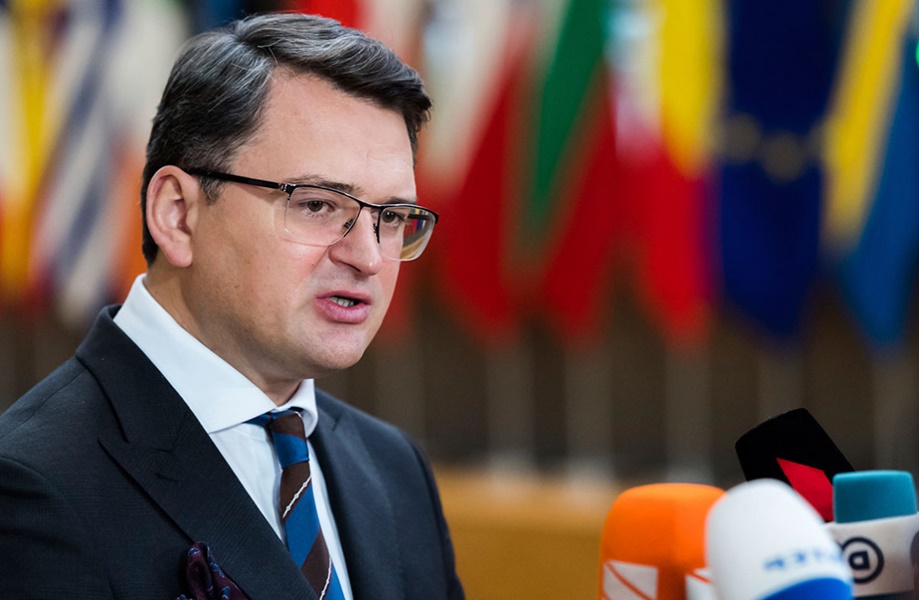The Minister for Foreign Affairs of Ukraine Dmytro Kuleba commented the call of US President Joe Biden with Russian President Vladimir Putin.
We are confident that in yesterday’s call Vladimir Putin heard some very clear and strong signals regarding Russia’s escalation along the border of Ukraine and in the region. On a number of occasions our American partners have already made it clear to Moscow that any further military adventures will come at an extremely high price. We are sure this call was no exception. The contact itself serves deterrence and de-escalation.
We appreciate the crucial diplomatic engagement of the U.S. in efforts to bring Russia back to the table of negotiations. Ukraine and the U.S. remain reliable strategic partners and we enjoy a high level of trust. The American side informed Ukraine in detail of the upcoming call and its key elements.
We are now working on preparing a call between presidents Volodymyr Zelenskyy and Joe Biden where leaders will be able to discuss further coordination of Ukraine, the U.S. and European partners in deterring Russia and revitalizing the peace talks within the Normandy format.
Ukraine is firmly devoted to seeking political and diplomatic solutions to the Russian-Ukrainian conflict. Currently, as we see a clear lack of constructiveness on the Russian side, the main priority is to effectively implement the comprehensive deterrence package to demotivate Russia from further military escalation. We are working closely with our allies on both sides of the Atlantic to achieve that.
The Russian Federation continues to maintain a reinforced group of troops along the border with Ukraine. 40 battalion tactical groups stand ready to be deployed as part of the potential offensive operation. The total number of forces along the border, in the occupied Donbas and Crimea, comprises 115,000 troops, which includes 93,000 troops being present on the ground and 22,000 as naval and air components. Russia is also increasing reconnaissance activities in the Black Sea region.
On 4 November 2021, Presidents of Russia and Belarus endorsed the Union State Military Doctrine that reinforces the integration of the Russian and Belarussian armed components and paves the way for the establishment of the joint command center for the air defense systems. After the West — 2021 military drills, a significant amount of Russian military equipment has not been withdrawn from Belarus, including C-400 units and SU-30 fighter jets. The number of Russian aircraft in Belarus may be increased up to 12. The Belarussian territory may be used for a potential military operation, given the 1084-kilometre-long border between Ukraine and Belarus.
Russia continues to violate the ceasefire in Donbas. From 1 January to 2 December 2021, Russian forces launched 2346 attacks against Ukrainian positions, leaving 65 Ukrainian soldiers dead and 261 wounded. 29 servicemen of the Ukrainian Armed Forces were killed by snipers.
Russia has also deployed 30 landing ships and boats as part of its Black Sea Fleet, increasing the strike capability five times, and the landing capabilities two times. It disrupts international navigation in the Black Sea and the Sea of Azov, blocking the passage of ships through the Kerch Strait.
In addition to the military build-up, the Russian Federation launches cyber attacks, increases disinformation and sows panic within the society. Russia is supporting and financing public campaigns aimed at discrediting the vaccination process in Ukraine. Similar anti-vaccination messages have been disseminated in Moldova and other European countries.
Russia also decreases gas transit through the territory of Ukraine, blocks export of coal and creates a shortage of gas supplies to raise gas prices. The Nord Stream 2 is designed to undermine the energy security not only of Ukraine, but also of the entire Europe. Devaluation of the Ukrainian gas transit system removes some restraining factors in the way of Russia launching a new wave of aggression against Ukraine.
If Russia decides to go ahead with a new military operation, this may occur between December 2021 and February 2022.
Ukraine is consolidating international response to Russian destabilising activities. Russia will face severe consequences if it resorts to the worst case scenario. All our efforts are centered now around setting up and implementing a comprehensive package of measures to deter Russia and reinforce Ukraine’s capabilities to defend itself. The actual work on such measures in various capitals has begun.
As part of coordination with our key allies and partners, US President Joe Biden made clear during a phone call with President Vladimir Putin on 7 December 2021 that Russia will face strong economic and other measures in the event of military escalation. Ukraine advocates, among other things, the introduction of new sectoral sanctions and Russia’s disconnection from SWIFT.
The Normandy format remains the main platform on which a diplomatic settlement can be negotiated. Ukraine, Germany and France will continue to call on Russia to de-escalate, rejoin the negotiations, and implement in full its commitments under the Minsk Agreements.

